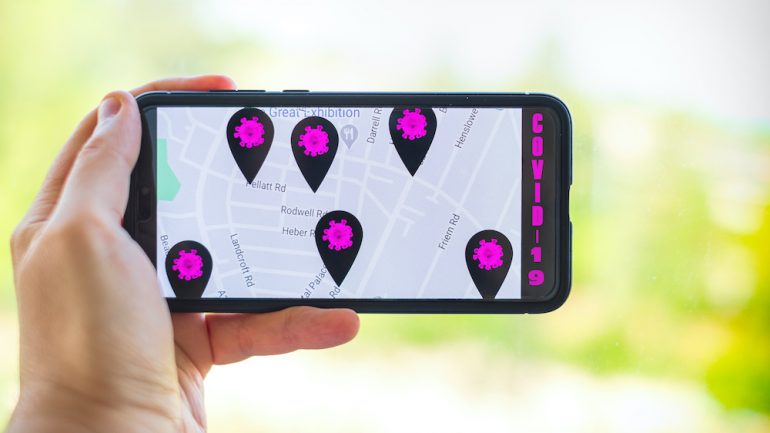As the COVID-19 pandemic rages on, scammers are preying upon people’s fear of the virus to steal their money and personal information. One way fraudsters do this is through contact tracing scams. Contact tracing is a legitimate method for limiting the spread of disease, but scammers are posing as contract tracers to rip people off. Here’s how to avoid contact tracing scams.
How contact tracing works
Contact tracing is a standard public health practice designed to stop or limit the spread of communicable diseases. After a person tests positive for COVID-19, public health employees attempt to contact everyone with whom the ill person has had contact within the 14 days prior to diagnosis, which is the incubation period of the virus. The people contacted are advised to isolate themselves and to have their families quarantine to prevent COVID-19 from spreading to others.
Contact tracing, done properly, is effective in stemming the spread of COVID-19. One study has shown that legitimate contact tracing, when combined with isolating infected persons and placing their families in quarantine, decreased transmission of the virus by more than 60 percent.
Preying on people’s fears
Contact tracing scammers, on the other hand, will send out mass phishing texts, e-mails, and calls targeting people who are afraid of contracting the virus. Their messages mimic legitimate contact tracing methods, saying the person may have been exposed to COVID-19. The crooks then try to extract sensitive information from the victim.
What is legit and what is not
A legitimate contact tracer may text you, but the message will simply state that the contract tracer will be calling the recipient. A scammer will include a link in the text. If you click it, you’ll end up at a site that phishes for sensitive information or the scammer may download malware onto your device. The same is true of contact by e-mail. Targeted victims also sometimes receive scam calls.
Red flags of contact tracing scams
Here are some tips for avoiding a contract tracing scam.
- A legitimate contact tracer will ask for your name, address, date of birth, occupation, and best contact information. In a contract tracing scam, you’ll be asked for inappropriate information, such as your health insurance details, social security number, bank account number, and immigration status.
- Any alleged contact tracer who asks for money is a fake. Do not give a contract tracer any financial information.
- To determine if a contact is legitimate, ask the contract tracer his name, the name of the agency he works for, and the county and state in which the agency is located. If he cannot give you those details, hang up.
The Federal Trade Commission has a page dedicated to contact tracing scams, as does the U.S. Department of Justice.
Related – Don’t Let The COVID-19 Crisis Infect Your Credit


